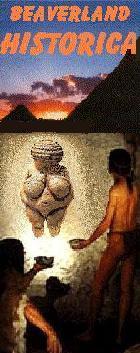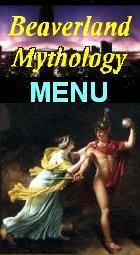
|

| ||||||
|
Books on eBay ??? |
Mithridates VI-King of Pontus (132 - 63 BC) by Akira Kato
October 11, 2003

In 89 BC, there was a quick civil war in Italy. Through this war came the famous general—Sulla. He used to be a junior officer under Marius. The people in the east in Asia Minor saw Rome fighting the civil war and thought it was a sign that Rome was going down the drain. King Mithridates of Pontus (located in the north-east of Asia Minor) decided to take advantage of Rome’s disorder and marched his troops into Roman territory. He had the great dream of conquering all of Asia Minor. To accomplish his goal, he would have to fight Rome over Pergamum. He gobbled up lots of territory where there were no Roman troops stationed. He thought he had years to get it together in Asia because everybody knew civil wars took a long time. He didn’t figure Rome would be back together within a year. The people in Asia welcomed Mithridates since they didn’t like the Roman tax system.
Mithridates wanted to make sure the Asians stuck with him so he had to make them do something. Mithridates ordered the Asians to massacre all the Roman civilians in the area (about 80,000 people). Meanwhile, Athens opened its port to him and he conquered Athens and Macedonia (where there also were no Roman troops). Rome got settled and needed to send an army to put a halt to Mithridates’ career. At the time, the Romans had two great generals—Marius and Sulla. Who to send? Sulla took the matters into his own hands and took his army and marched on Rome and seized the government. That was easy because the people didn’t care about the government. Things couldn’t be worse under Sulla than under the Patricians who were blocking them. Sulla took the army and left for Greece and Asia. While he was gone, his enemies recaptured the capital and returned it to the old government. Sulla clobbered Mithridates twice in Greece and followed him back to Asia. He whipped him there too, but he didn’t capture him. Mithridates slunk back to Pontus. Sulla got all the Roman real estate back. But what would he do with all the people in Asia who had massacred the Roman citizens? He would have to do something to show his displeasure. So, as an act of reprisal, Sulla quartered his troops on the people for the winter. Armies were mean, professional killers. In peacetime, the government usually tried to keep control of them by putting them in barracks. Quartering them meant making private families take in some soldiers to keep, feed, and generally entertain for the winter. It was probably the worst thing he could do other than destroying them. Sulla went back to Rome and seized the government again. He published a Proscription list (death list) of “';enemies of the states”, which means enemies of Sulla. He was fair because he allowed his friends to put their enemies on the list, too. He was the first to seize the state. He beat Mithridates but he didn’t finish him off. That was his career. Sulla retired to lead a life of "refined debauchery" that killed him within a year. General Pompey Some new generals were coming up. They were junior officers under Sulla. One was Gaius Pompey who made a minor reputation under Sulla. As a joke, Sulla started calling him “Pompey the Great” and Pompey believed him. General Sertorius In Spain, there was another great general—Sertorius. He was an enemy of Sulla’s and had gone up there to train troops to beat Sulla. But he was too late, for Sulla had control of everything by the time Sertorius got it together. However, he was neat. He had a problem because his army was made up of barbarians. As a general rule, barbarians were more religious. They didn’t know how to explain things or handle problems so they just let religion take care of things. As people became more civilized, they relied on religion less. Sertorius told them he was a prophet of god sent to them. One of his troops found an albino fawn in the woods and smuggled it into camp. Sertorius trained it to come to him when he called it as proof he was a prophet. It impressed the barbarians. Sertorius also arranged a special postal system of swift Pony Express type couriers so he would get the news about 10 hours ahead of regular post. He could be reviewing the troops and call the deer to him. The deer would whisper the latest report in his ear, which he would announce to the troops and 10 hours later the normal courier would come in and prove him right. There was a group of cave barbarians that nobody had ever bothered yet. Hannibal had left them alone because nobody could get them out of the caves. Sertorius wanted to get them because no one else had. He made a dust bowl by having horses ride over the land in front of the caves to kick up dust. After about a week of dust, the barbarians came out of the caves. He was really neat. Rome decided they didn’t like Sertorius being up there and sent Pompey to get him. Pompey couldn’t even find him and bumbled around Gaul. But Pompey got lucky and somebody assassinated Sertorius. Without Sertorius, the barbarians fell apart and Pompey got Spain by default. Back home, they said, “He sure is great.” and Pompey said, “Yup, I sure am.” Meanwhile, Mithridates, seeing the Romans at each other again. He started causing trouble in the East again. Rome raised another army and sent it over. It was a weird army for Rome. Sometimes it fought and sometimes it went on strike against its generals. However, it did beat Mithridates but it didn’t finish him off either because they kept going on strike. In 73 BC, Pompey was in Spain and the other army was in the East sitting down a lot. At that time a group of gladiators in a training school in southern Italy broke out under the leadership of Spartacus. He was a deserter of the Roman army who had been caught and made into a gladiator. He started liberating slaves in southern Italy. It was easy because there weren’t many Romans in southern Italy—mostly pasture land. And the armies were off in the world somewhere. Eventually Rome raised a third army under the leadership of Crassus to go down and get Spartacus. Crassus beat him and all the slaves were fleeing the field. In the meantime, Pompey had landed in southern Italy and finished off the fleeing slaves. Pompey got the reputation because he finished off the gladiators. Pompey and everyone else was really starting to believe he was great. Crassus was the general against Spartacus. He was the richest man in the world. He had the greatest private fortune in the ancient world. He was a personal friend of Sulla’s. This is the main reason why he kept his fortune and his life. He got to add his enemies to the Proscription List and after they were gone he would buy up their territory at a cheap price. He also owned the only fire station in Rome. A fire station in those days amounts to a gang of slaves with leather buckets that would run to the fires and set up lines from the nearest water to the fire and pass the bucket. Crassus made money on the fires. He would go to the fires of rich people’s homes and have his crew wait around the corner. While the fire was going on, he would console the rich person: “What a shame! I’ll tell you what. I’ll make you a deal for your burning house.” He’d offer much less than it was worth. The rich would probably refuse and Crassus would just stand and watch until the rich person took his offer and then he’d call his fire crew to come and put out the fire. Cicero—the big orator of the day. He started out in law and then went on to politics. He was in the Senate. He thought the Senate should continue controlling the state because they gave good advice. Actually, he was making money on the Senate being in control and, with his gift of gab, he tried to make sure they stayed in control. A piracy problem on the Mediterranean Sea. Pirates are in business because it was more fun to steal than buy. Whoever was the major naval power of the day had always taken care of the pirates in their own self interest. Athens, Carthage, etc. had done it when they were big so they wouldn’t have their stuff swiped. But now that Rome controled the world, there was no naval power in the world. Rome only functioned well on land. The pirates were out there floating around and nobody was doing anything about it. But the pirates got bold and started picking on the Roman grain ships coming from Egypt and the East. All of a sudden, the Romans noticed there were pirates out on the ocean. What a surprise! They decided they needed a general to clean up the pirates. Have they got a good general to lead they navy? Why, of course, they have Pompey the Great! They gave him a navy and expected him to get it done within 3 years. What he did was close down the pirates’ harbors. They have to get in off the sea sometime and so they were put out of business. Pompey cleaned them up in 3 months. Boy, was he great! Actually, Rome had never paid any attention to pirates and were greatly overestimating the problem. Any idiot could have done it in a short time. It just adds to Pompey’s glory. At last, Mithridates committed suicide. Meanwhile, over in the East, there was someone causing trouble again. You guessed it—Mithridates! Every Roman general had beaten him but they’d never finished him off and he was still around to cause a hassle. The people of Rome wanted a general to knock over Mithridates for once and for all. Do they have one? Yup. Good ole Pompey the Great! He took over extra manpower and whipped Mithridates bad. Mithridates finally got discouraged and committed suicide.
| ||||||

| |||||||



















